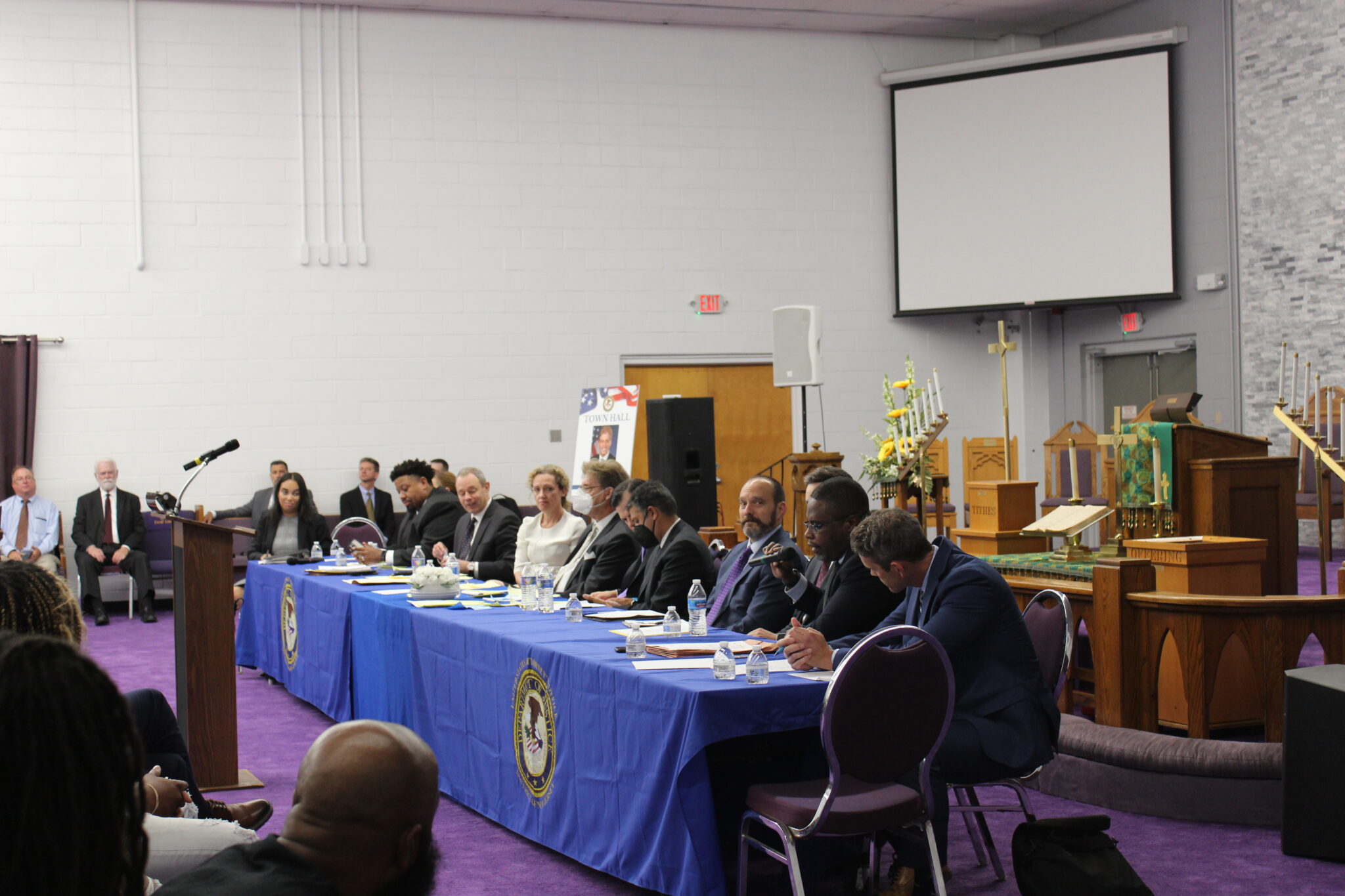The Department of Justice (DOJ) is asking community members to weigh in on its investigation into systemic abuses of power by New Jersey’s Trenton Police Department (TPD), by joining a virtual meeting October 23 at 6 p.m. EST. It’s the first in an ongoing series of such meetings for the “pattern or practice investigation” into TPD as well as the City of Trenton, which DOJ announced on October 17.
At the center of the investigation are allegations of unnecessary use of force wherein TPD target minorities, people in mental health crisis and bystanders attempting to film. Serious injuries have been reported as a result. DOJ is also investigating reports of searches and seizures conducted without warrants, in violation of Constitutional rights. If the allegations bear out, DOJ will file a lawsuit to force changes in policy.
“There are numerous reports that Trenton Police Department officers routinely conduct stops and searches without any justifiable reason. No warrant or probable cause—just a stop and search. Oftentimes of minority residents,” stated United States Attorney for the District of New Jersey Philip R. Sellinger on October 17. “At times, these problematic stops escalated into problematic arrests, in some instances because the person being stopped simply wanted to know why.”
Pattern or practice investigations are how DOJ determines whether a police department has a culture of systemic misconduct. They don’t investigate any individual officers or incidents. However, DOJ does review documents and bodycam footage from individual incidents, and interview individual officers and community members. This is the 11th pattern or practice investigation since 2021. DOJ most recently opened one into the Memphis Police Department in July.
pattern_or_practice_investigation_faqs_english
“These investigations can take months, and they’re pulling lots of data [to examine] how record-keeping is inadequate, how maintaining certain information on policies is lacking,” New Jersey Institute of Social Justice Senior Counsel Emily Schwartz told Filter. “They’ll go into the weeds.”
Trenton Mayor Reed Gusciora stated that he’d instructed city government officials to cooperate, albeit in a somewhat roundabout way:
“In the past few months, over 214 firearms, 2,868 grams of crack cocaine and 26,066 decks of heroin, and $133,722 dollars were seized from drug and firearm traffickers,” Gusciora told press during the course of his brief statement. “But we also recognize that the community’s trust in our police force is critical.”
In April, the city paid nearly $2 million in a wrongful death lawsuit after a man died handcuffed and facedown in TPD custody as officers knelt on his back.
Earlier in 2023 two TPD officers faced federal charges for allegedly punching a man repeatedly during a routine traffic stop, resulting in a hung jury for one officer and an acquittal for the second in May.
The Newark Police Department, meanwhile, has been operating under a DOJ consent decree since 2014, wherein its overseen by a court-ordered federal monitor as it changes its policies. This has resulted in more than a dozen new policies adopted and a dramatic reduction in reports of abuses of power like using excessive force.
Lack of internal oversight and accountability mechanisms has remained a prominent theme.
“When you look at the history of Newark and … the consent decree, there has been tremendous progress,” Schwartz said. “There is now clear public policy for residents to look to know when and how law enforcement is allowed to interact with [them].”
Yet lack of internal oversight and accountability mechanisms has remained a prominent theme. New Jersey made police disciplinary records public in 2021, but only in a limited context.
“New Jersey has really fallen behind on police disciplinary records transparency,” ACLU of New Jersey Policy Director Sarah Fajardo told Filter. “Over 20 states are ahead of us, including Florida and Alabama, where you can access disciplinary records and know who’s policing and the charges they’re facing [or] have sustained or been cleared of.”
Fajardo said ACLU-NJ is pushing for legislation that would increase records transparency, as well as legislation supporting civilian complaint review boards. In addition to community oversight, advocates are calling for non-police alternatives for mental health crises response
“A big push in New Jersey right now is for community-led crisis response teams … to de-escalate conflict in the community,” Fajado said. “Without engaging law enforcement.”
Photograph of September Trenton Community Town Hall Meeting via United States Department of Justice





Show Comments